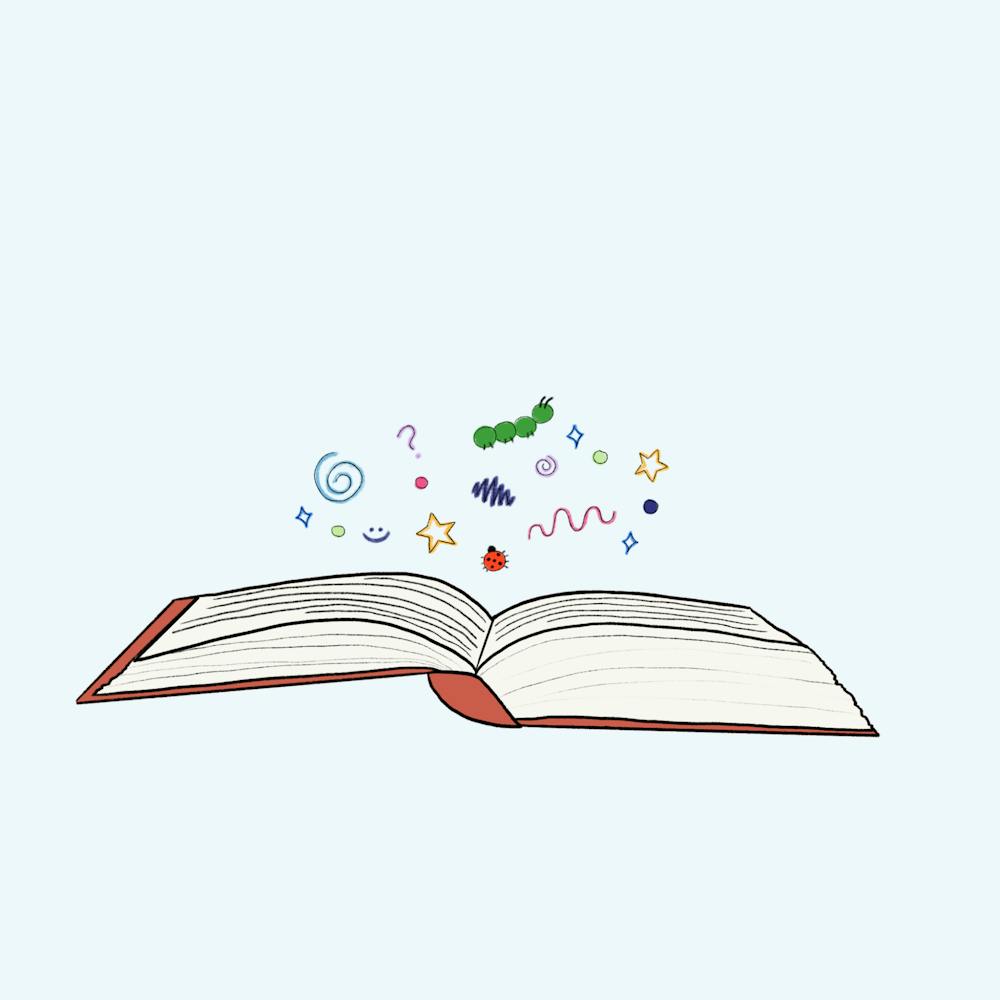Reading a book is oftentimes associated with school homework or textbooks, but reading as a leisurely activity can expand the imagination, vocabulary and bring different worlds to life.
For non-readers, it can be difficult to get started because it can seem boring, time-consuming or impossible to find a book that would entertain them. There are a wide variety of book genres ranging from fantasy to horror, ensuring there is something for everyone.
For new readers, general fiction is a common genre to start with.
“Start with a fiction book in general for any age, if you’re in college, new adults are great but I’d say definitely in the broader range of fiction for sure,” said Colin McCammon, bookseller and trainer at Auburn Oil Co. Booksellers.
Reaching out to teachers, librarians or local bookstores for recommendations can be beneficial for finding the perfect book to start the reading journey with.
“Going to either your local library or a bookstore and just talking to people that work there is one of the best ways. They can always point you to other options that they think you might be interested in,” said Jess Tripp, bookseller at Auburn Oil Co. Booksellers.
Once a genre is established, there are many options of books to choose from.
One common struggle for both readers and non-readers alike is the lack of time to dedicate to a book. School, work and social activities can all get in the way of reading time.
Setting aside certain time each day for reading can ensure that it does not get sacrificed due to a busy schedule. Working it into a daily routine can form reading into a habit and will be done without a second thought.
“I’ll set a book aside that’s not anything related to what I’m studying or what I’m reading in class and just something that’s fun and makes me excited about reading. I try to set a weekend aside where I can just unplug and read my book,” said Mary McDonald, senior majoring in English.
Finding a specific time of day that is the most enjoyable to read is another important aspect of making it part of a routine. Whether it is in the morning with a cup of coffee or late at night before bed, the best time of day for reading varies between individuals.
“I mainly do it at night because it’s the time I carve out of my day to sit, relax and unwind ... I want to use the nighttime because it is my safe space. I light a candle, get in bed and put on a cozy YouTube video,” Tripp said.
Not only can reading be used for entertainment or to wind down after a long day, but there are also many brain benefits. Focusing enough to get immersed in a book takes self-control and patience, and those practices will benefit other aspects of life as well.
“It stimulates your brain and you learn so much; you learn new vocabulary and it helps you become a better communicator,” McCammon said.
Along with vocabulary, reading also helps spark creativity and gives readers different perspectives on subjects.
“It also encourages creativity whether you realize it or not ... There's so much creativity that goes into writing and, even if you’re not the one that's reading it and not writing, you start to pick up on the little things and you get involved in that creative process, and it’s so mind-opening and makes you realize not everything is two dimensional,” Tripp said.
For many readers, reading is an escape and is used as a way to immerse themselves in different lives. Building up knowledge and imagination can be done by reading.
“I think it’s helpful to everybody because it gives you a little space you can get away, the same as watching a movie would be, but you make it your own. That’s why reading is completely built on your own world,” McDonald said.
By setting time aside to dive into a book, readers can separate leisurely reading from academic reading and fully immerse themselves into a story.
Do you like this story? The Plainsman doesn't accept money from tuition or student fees, and we don't charge a subscription fee. But you can donate to support The Plainsman.





